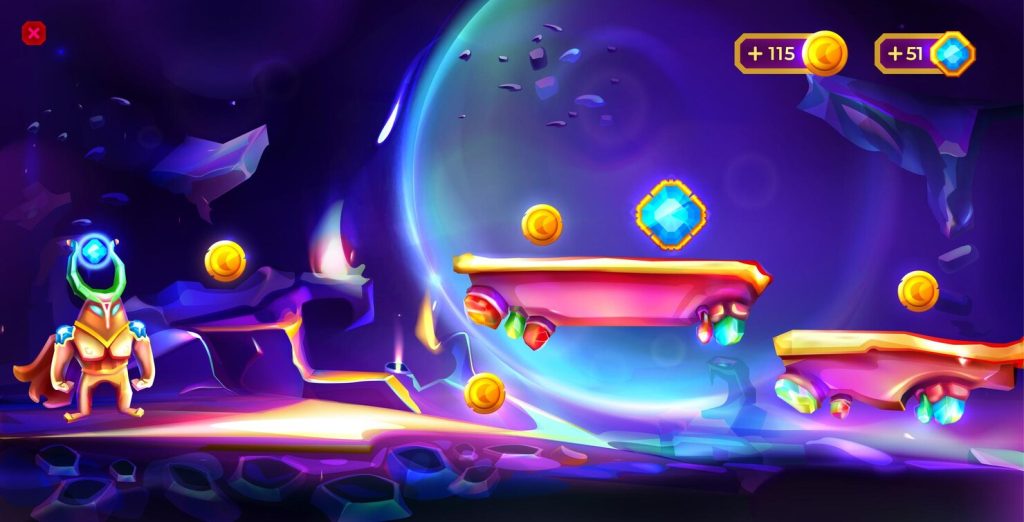In the world of game development, choosing the right game engine is a critical decision that can significantly impact the success of your project. Two of the most popular and powerful game engines available today are Unity and Unreal Engine. Both have established themselves as industry leaders, each with its own strengths and weaknesses. In 2024, the decision of “Unity vs Unreal” remains as relevant as ever, with developers often finding themselves at a crossroads when deciding which engine to use.
This article delves into the features, strengths, and weaknesses of both Unity and Unreal Engine, helping you make an informed decision for your game development needs in 2024.
Overview of Unity
What is Unity?
Unity is a versatile and user-friendly game engine that has become the go-to choice for many indie developers and small studios. Launched in 2005, Unity has evolved into a robust platform capable of creating 2D, 3D, VR, and AR experiences across multiple platforms, including mobile, PC, consoles, and the web.
Key Features of Unity
- Cross-Platform Development: Unity supports a vast range of platforms, from iOS and Android to consoles like PlayStation and Xbox, as well as desktop and web. This makes it an excellent choice for developers looking to reach a wide audience.
- User-Friendly Interface: Unity’s interface is intuitive and beginner-friendly, making it accessible to new developers. The drag-and-drop environment, combined with a vast asset store, allows developers to create games without needing to write extensive code.
- Asset Store: Unity’s Asset Store is one of its standout features, offering a vast library of assets, tools, and plugins that can significantly speed up development. Whether you need 3D models, animations, or scripts, the Asset Store has it all.
- Community and Support: Unity has a large and active community of developers, offering a wealth of tutorials, forums, and resources to help newcomers and veterans alike.
- C# Programming: Unity uses C# as its primary programming language, which is known for its simplicity and versatility. This makes it easier for developers, especially those with a background in .NET, to pick up and start developing.
Advantages of Unity
- Ease of Use: Unity is known for its user-friendly interface and ease of use, making it a popular choice among beginners and indie developers.
- Wide Platform Support: Unity’s ability to deploy to almost any platform is a significant advantage, especially for developers targeting multiple markets.
- Active Community: The large and active Unity community provides a wealth of resources, tutorials, and support.
Disadvantages of Unity
- Graphics Quality: While Unity has made significant strides in graphics quality, it still lags behind Unreal Engine in terms of high-end, photorealistic visuals.
- Performance: Unity may struggle with performance in very large or complex projects, particularly when compared to Unreal Engine’s capabilities.
Overview of Unreal Engine
What is Unreal Engine?
Unreal Engine, developed by Epic Games, is a powerhouse in the world of game development. Initially released in 1998, Unreal Engine has been at the forefront of high-end game development, particularly known for its cutting-edge graphics and powerful tools. Unreal Engine 5, the latest version, has set new standards for realism and performance in the industry.
Key Features of Unreal Engine
- High-End Graphics: Unreal Engine is renowned for its stunning graphics and visual fidelity. The engine’s capabilities in rendering realistic environments, characters, and effects are unmatched, making it the preferred choice for AAA game developers.
- Blueprint Visual Scripting: Unreal Engine’s Blueprint system allows developers to create complex game logic without writing a single line of code. This visual scripting system is powerful and flexible, making it accessible to non-programmers.
- Nanite and Lumen: With the introduction of Unreal Engine 5, features like Nanite (virtualized geometry) and Lumen (dynamic global illumination) have revolutionized the way developers approach level design and lighting. These tools allow for the creation of incredibly detailed environments and realistic lighting effects.
- Built-in Multiplayer Support: Unreal Engine provides robust tools for creating multiplayer games, making it easier for developers to implement online features.
- C++ Programming: Unreal Engine primarily uses C++, which, while powerful, can be more complex and challenging for beginners compared to Unity’s C#.
Advantages of Unreal Engine
- Superior Graphics: Unreal Engine’s graphics capabilities are unparalleled, making it the go-to choice for developers aiming for photorealistic visuals.
- Powerful Tools: Unreal Engine’s suite of tools, including Blueprint, Nanite, and Lumen, provide developers with the power to create highly detailed and complex games.
- Industry Standard for AAA Games: Many of the most popular AAA games are developed using Unreal Engine, making it a strong choice for developers aiming for the top of the market.
Disadvantages of Unreal Engine
- Steep Learning Curve: Unreal Engine’s complexity can be daunting for beginners, particularly those without a programming background.
- Resource-Intensive: The high-end graphics and powerful tools come at a cost—Unreal Engine requires more powerful hardware and can be resource-intensive.
- Smaller Asset Store: While Unreal Engine’s marketplace is growing, it is not as extensive as Unity’s Asset Store, which can be a limitation for some developers.
Unity vs Unreal: Head-to-Head Comparison
Ease of Use
When it comes to ease of use, Unity clearly has the upper hand. Its intuitive interface, coupled with a vast array of tutorials and a strong community, makes it an ideal choice for beginners. The use of C# as the primary scripting language is another factor contributing to its accessibility. In contrast, Unreal Engine has a steeper learning curve, especially for those new to programming or game development. While the Blueprint visual scripting system is a powerful tool, mastering Unreal Engine’s full potential requires a deeper understanding of game development principles and C++.
Graphics Quality
In the “Unity vs Unreal” debate, Unreal Engine is the undisputed leader in graphics quality. The engine’s ability to produce photorealistic environments, characters, and effects is unmatched, thanks to features like Nanite and Lumen in Unreal Engine 5. If your project demands top-tier visuals, Unreal Engine is the way to go. Unity has improved significantly in recent years, but it still cannot match Unreal Engine’s high-end graphics capabilities, particularly in AAA game development.
Performance
Unreal Engine generally offers better performance, especially in large-scale, complex projects. Its ability to handle massive, detailed environments and advanced physics makes it the preferred choice for high-performance games. However, this comes at the cost of requiring more powerful hardware. Unity, while still capable of handling large projects, may struggle with performance in certain scenarios, particularly when dealing with highly detailed graphics or complex simulations.
Platform Support
Both engines offer extensive platform support, but Unity takes the lead in this category. Its ability to deploy to almost any platform, from mobile devices to consoles and the web, makes it incredibly versatile. Unreal Engine also supports a wide range of platforms, but Unity’s streamlined deployment process and broader platform compatibility give it an edge.
Pricing
As of 2024, both engines offer competitive pricing models. Unity operates on a subscription basis, with different tiers depending on the size of your studio and revenue. There is also a free version available, though it comes with some limitations. Unreal Engine offers a royalty-based model, where developers pay a percentage of their revenue once they exceed a certain threshold. For small developers and indie studios, Unity’s pricing model might be more appealing, while Unreal Engine’s royalty-based system could be more attractive to larger studios expecting higher revenues.
Community and Support
Unity has a more extensive and active community, which can be a significant advantage for beginners and indie developers. The abundance of tutorials, forums, and third-party resources makes it easier to find help and solutions to common problems. Unreal Engine also has a strong community, particularly among professional and AAA developers, but it is generally smaller and more specialized.
Which Engine Should You Choose in 2024?
Choosing between Unity and Unreal Engine in 2024 ultimately depends on your specific needs, goals, and resources.

Choose Unity if:
- You are a beginner or an indie developer looking for an accessible and user-friendly engine.
- Your project involves 2D game development or cross-platform deployment, particularly on mobile or web platforms.
- You want a vast asset store and a large, active community to support your development process.
Choose Unreal Engine if:
- You are aiming for high-end graphics and photorealistic visuals in your game.
- Your project is a large-scale, complex game with advanced features such as multiplayer or detailed environments.
- You have experience with game development and are comfortable with a steeper learning curve.
In the “Unity vs Unreal” debate, there is no one-size-fits-all answer. Both engines are powerful and capable of delivering outstanding results, but the best choice depends on your specific project requirements and development experience. As technology continues to evolve, both Unity and Unreal Engine will likely continue to innovate and push the boundaries of what is possible in game development, making this choice an exciting one for developers in 2024 and beyond.
